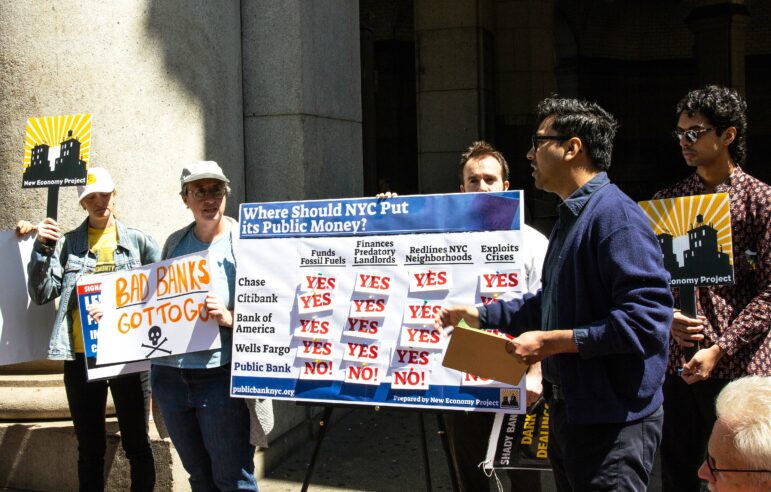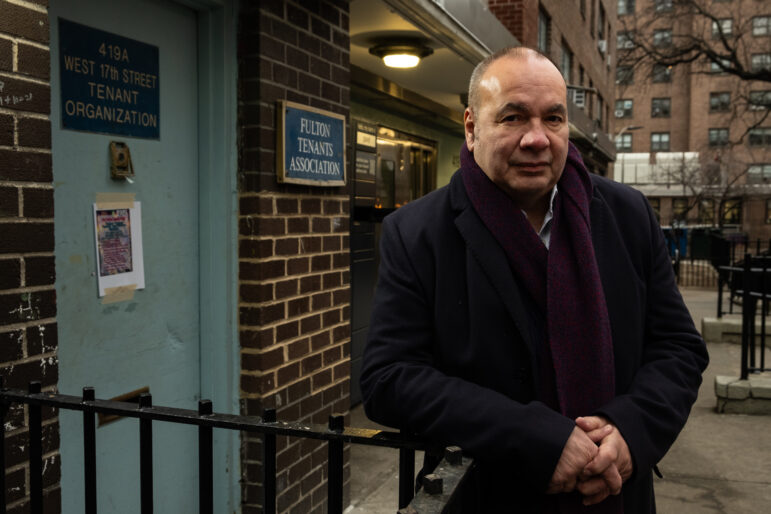The state’s rent stabilization laws don’t expire until 2003, but tenant advocates looking to tweak the regulations are treating this year’s elections as a make-or-break opportunity. Exactly what demands they plan to make, however, depends on whom you ask.
Tenants and Neighbors, a statewide tenant advocacy group, recently kicked off Rent 2002, a campaign that calls for extending the current rent laws through 2006, in time for the next governor’s race, with one exception: Cut out “vacancy decontrol.”
In 1997, the last time it reauthorized the rent laws, the New York State legislature let landlords hike rent by 20 percent or more as tenants leave regulated apartments. That measure has helped landlords escape regulation entirely, thanks to another provision included in the reauthorization: Apartments renting for $2,000 or more are now deregulated immediately upon vacancy.
Landlord rep Roberta Bernstein of the Small Property Owners of New York says the two provisions have “barely affected housing outside of midtown Manhattan.” But Michael McKee, associate director of Tenants and Neighbors, tells a different story. He says the combination of provisions has led to the deregulation of 2 percent of the city’s rent-controlled apartments between 1997 and 1999.
Most tenant activists agree that getting rid of vacancy decontrol is essential. But some are still adamant about demands that the state legislature ignored or repealed in 1997–demands that are absent from the Tenants and Neighbors’ latest campaign.
“We could have a huge wish list,” says Jenny Laurie, executive director of the Metropolitan Council on Housing. Topping their agenda, in addition to rolling back decontrol: the repeal of the Urstadt law, which allows the legislature to determine the city’s rent laws; reenacting a stronger rent deposit law to give poor tenants more than five days to pay their back rent in court; and extending fair-cause eviction laws to short-term tenants.
Met Council has not signed on to the Rent 2002 campaign as of yet, and it is still figuring out how it will handle its own organizing efforts this year.
Meanwhile, McKee hopes his streamlined agenda will soon draw more supporters. During Showdown 1997, he says, the tenants’ demands were too scattered, and too many. As a result, he contends, their interests were compromised, and decontrol passed.
Not this time, he vows: McKee promises to produce a bill lawmakers can’t “duck and dodge.” As of mid-January, campaign members included the Fifth Avenue Committee, the Citywide Tenants Coalition and the Nassau and Westchester Tenant Coalitions. While Governor George Pataki is their primary target, they are soliciting support from Democratic gubernatorial candidates State Comptroller H. Carl McCall, who was the keynote speaker at Tenants and Neighbors annual meeting this winter, and Andrew Cuomo.
“This bill isn’t everything that tenants want,” says McKee, “but Republicans will have a hard time saying no.”








